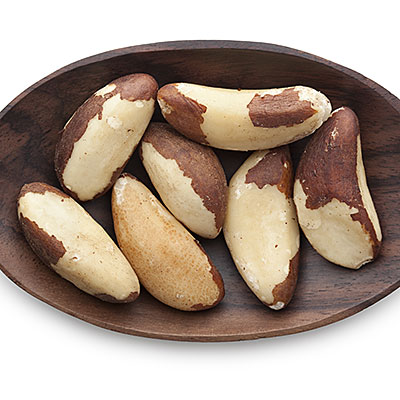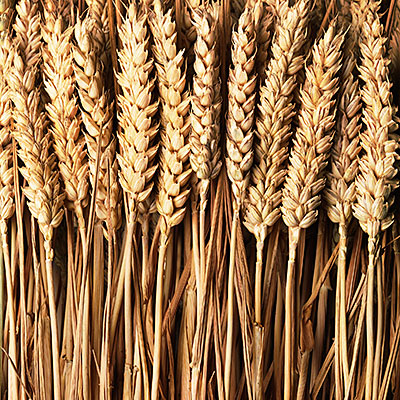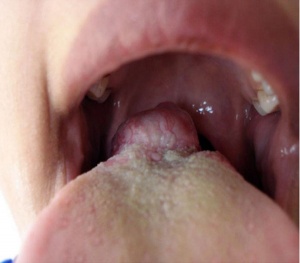Your thyroid is your body’s silent workhorse—most of the time, it functions so smoothly that we forget it’s there. But this little, butterfly-shaped gland that sits at the base of your neck helps regulate your metabolism, temperature, heartbeat, and more, and if it starts to go haywire, you’ll notice.
An underactive thyroid—when the gland fails to produce enough thyroid hormone (TH)—can bring on weight gain, sluggishness, depression, and increased sensitivity to cold.
An overactive thyroid, on the other hand, happens when your body produces too much TH, and can cause sudden weight loss, irregular heartbeat, sweating, nervousness, and irritability.
Genetics, an autoimmune condition, stress, and environmental toxins can all mess with your thyroid—and so can your diet, one factor you can completely control.
See the foods that may help keep your thyroid humming along, as well as some that won’t.
Best: Seaweed
Your thyroid needs iodine to work properly and produce enough TH for your body’s needs. Don’t get enough iodine, and you run the risk of hypothyroidism or a goiter (a thyroid gland that becomes enlarged to make up for the shortage of thyroid hormone)
Best: Yogurt
Short of eating a few kelp salads, you probably don’t have to worry about getting too much iodine from any other foods. In particular, dairy products are full of this nutrient (and in more manageable amounts).
 Best: Brazil nuts
Best: Brazil nuts
Brazil nuts are packed with another nutrient that helps regulate thyroid hormones: selenium.
Just one kernel contains 96 micrograms, which is almost double the daily recommended intake of 55 micrograms. And remember, the max upper limit of selenium is 400 micrograms a day, so don’t go overboard. Too much selenium can cause “garlic breath,” hair loss, discolored nails, and even heart failure, says Ilic.
 Best: Milk
Best: Milk
Much of the iodine in the average diet comes from dairy products, according to a 2008 study by researchers from the Food and Drug Administration. But our consumption of dairy has been on the decline for decades. By drinking 1 cup of low-fat milk, you’ll consume about one-third of your daily iodine needs. Another good idea: Opt for a glass that’s been fortified with vitamin D.
 Best: Chicken and beef
Best: Chicken and beef
Zinc is another key nutrient for your thyroid—your body needs it to churn out TH. Take in too little zinc, and it can lead to hypothyroidism. But get this: If you develop hypothyroidism, you can also become deficient in zinc, since your thyroid hormones help absorb the mineral, explains Ilic. And when that happens, you may also experience side effects like severe alopecia, an autoimmune condition that attacks hair follicles and makes it fall out in clumps, according to one 2013 report.
Best: Fish
Since iodine is found in soils and seawater, fish are another good source of this nutrient. In fact, researchers have long known that people who live in remote, mountainous regions with no access to the sea are at risk for goiters.
Best: Eggs
One large egg contains about 16% of the iodine and 20% of the selenium you need for the day, making them a thyroid super food. If you haven’t been instructed otherwise by your doctor, eat the whole egg—much of that iodine and selenium is located in the yolk, says Ilic.
 Best: Berries
Best: Berries
The best diet for your thyroid requires more than just iodine, selenium, and vitamin D, says Ilic. And—perhaps unsurprisingly—foods that are high in antioxidants are also good for your thyroid.
Good: Cauliflower, kale, broccoli, bok choy
Do a little Googling, and you might turn up a page or two claiming that cruciferous vegetables can cause thyroid troubles. The truth is a little murkier. While it’s true that these veggies contain compounds called glucosinolates, which mightinterfere with your body’s production of thyroid hormones in high amounts, it’s pretty unlikely that they’ll harm your thyroid if you’re eating normal-size servings.
 Worst: Gluten (if you have celiac disease)
Worst: Gluten (if you have celiac disease)
People with celiac disease—the autoimmune disease that’s characterized by an intolerance to the gluten in wheat, barley, and rye—are also more likely to have higher rates of thyroid problems.
















New Hypothyroidism Revolution
March 26, 2016 at 4:12 am
Thank you
James Gonzales
March 24, 2016 at 2:21 am
I highly recommend every Hypothyroidism Sufferers to read this very good article about Hypothyroidism: “5 Essential Steps for Hypothyroidism Treatment Success”. You will learn a lot about Hypothyroidism. Good Luck!
Link to the article: http://www.healthandremedies.org/5-essential-steps-hypothyroidism-treatment-success/